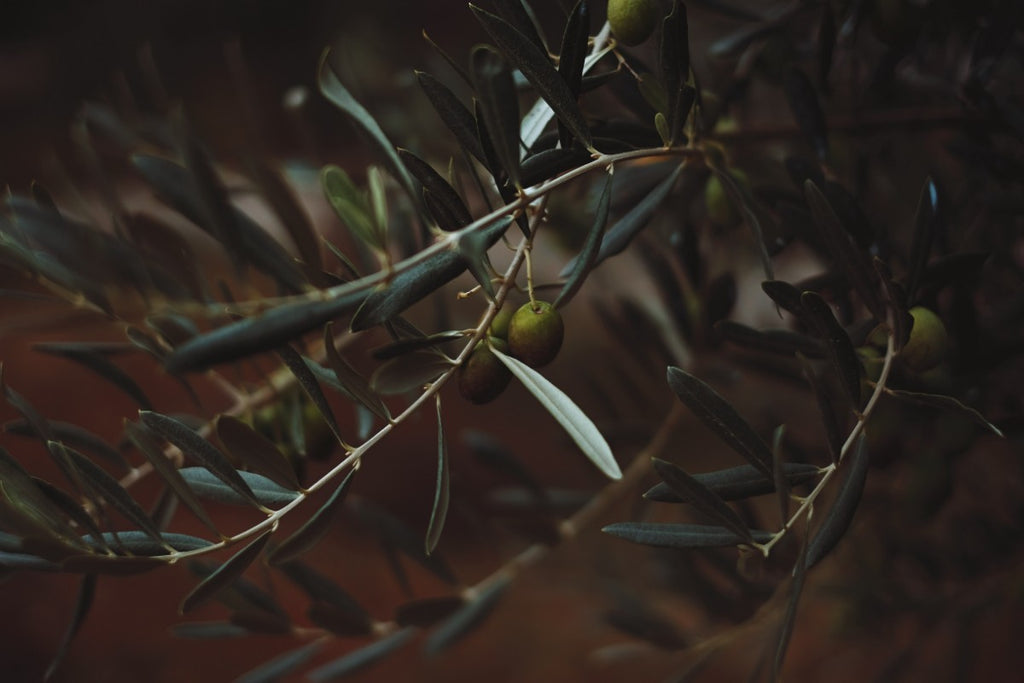Everything You Need to Know about Olive (Olea europaea)
Last time you ordered olives with your charcuterie board, did you think about how healthy the fruit was? Or just how delicious?
The Olive tree has been used for thousands of years for food, medicine, and as a symbol of peace. It can live for upwards of two thousand years, growing slowly and pulling nutrients into its branches with a deep tap root.
It’s such an incredible plant that we have our own Olive Leaf Extract here atThePureWay. We use it to help increase energy, build our immune system, and balance blood sugar over time.
Like with the Elder tree, we thought sharing an herbal monograph would be the best way to tell you more about Olive.
Olive—Olea europaea
Family: Oleaceae
Planetary Connection: Sun
Plant Description:
- Evergreen tree that can grow up to 20 feet tall but is often kept short.
- Bark is pale green with lanceolate leaves. They are green above and silvery below.
- Flowers are fragrant and white—turning into black or purplish fruits.
Habitat: Olive is Native to Africa, Southern Europe, and Western Asia!
To Grow: They love a long, hot growing season, with full sun and well drained soil. They can survive to dry conditions.
Energetics: yang, fire
Leaf: bitter - cold - dry
Fruit: sweet - hot - moist
Actions:
Leaf: antibacterial, antifungal, anti-inflammatory, antioxidant, antiparasitic, antiseptic, antispasmodic, antiseptic, antispasmodic, antiviral, immune stimulant, tonic, vasodilator
Oil: antioxidant, antiseptic, demulcent, emollient, laxative, nutritive, tonic
Notable Constituents:
Leaf: calcium elenolate, flavonoids, phenolic compounds, olesterol, vauquesline, oleuropein
Oil: protein, polyphenols, fatty acids, phytoestrin, enzymes, triterpenes, oleuropein, bitter principle, lecithin.
Traditional Uses:
- Oleuropein, that exists in the leaf and the oil is what protects the olive tree from pathogens. When ingested, it also protects the human body. It’s so effective at dissolving the outer lining of pathogens that this constituent has to be removed to ferment the fruit.
- Olive increases the number and activity of phagocytes.
- Relaxes and dilates peripheral blood vessels protects against the hardening of arteries.
- Kills off pathogens.
- Lowers blood sugar levels.
- Better eliminate uric acid.
- Traditionally used to work with: botulism, bronchitis, candida, chicken pox, chlamydia, flu, fibromyalgia, heartbeat irregularities, hepatitis, herpes, hypertension, leprosy, lyme disease, malaria, measles, mumps, parasites, pinworm, polio, psoriasis, smallpox, rheumatoid arthritis, shingles, sinusitis, tumors, ulcer, whooping cough, and yellow fever.
- Reduces levels of digestive acids.
- Increases bile secretions.
- Soothes mucous membranes.
- Relieves congestions in the lymph and lungs.
- Dissolves cholesterol.
- Lower levels of LDL.
- Increases blood flow.
- Leaf wash, compress or poultice: use on athlete's foot, crabs, lice, scabies, ringworms, and wounds.
- Oil is often used in skin care as a moisturizer and is great for carrying essential oils and infusing other herbs.
Flower Essence:
- Relieve mental and physical exhaustion. Great for overwork or excessive worry. Great in times of conflict.
Other Uses:
- This has been a symbol of peace since ancient times.
- Oil lamps can run on olive oil.
- Olive wood is beautiful and well renown in woodworking.
Contraindications:
- The pathogen die offs are intense and can cause lethargy.
- If you’re drinking leaf tea, use it with food because it can cause stomach ache if it’s really strong.
References:
Mars, B. (2007). The desktop guide to herbal medicine: The ultimate multidisciplinary reference to the amazing realm of healing plants, in a quick-study, one-stop guide. Laguna Beach, CA: Basic Health Pub.
Photo by Emre Gencer on Unsplash

0 comments